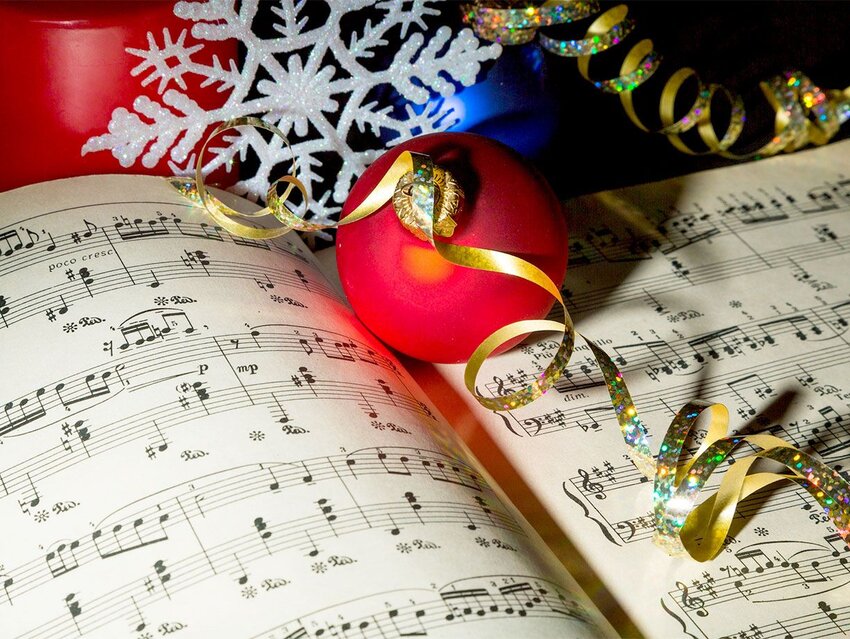Cheery jingles have long been part of getting into the Christmas holiday spirit. But even if the tunes get stuck in our heads and we know the lyrics by heart, do we really know what they mean? For example, what is figgy pudding? Troll the ancient Yuletide carol and learn more about these archaic Christmas words.
Bobtails
“Bells on bobtails ring, making spirits bright” is an unforgettable line from the 19th-century carol “Jingle Bells.” A bobtail is a short or docked tail of an animal, especially on a horse or dog. The premise of this carol is riding on a “one-horse open sleigh” — which was also the song’s original title — so these bobtails are on horses whose tails are decorated with bells for the holiday season.
Figgy Pudding
The most memorable use of “figgy pudding” must be in the carol “We Wish You a Merry Christmas,” which includes the lyric, “Oh, bring us some figgy pudding.” Perhaps surprisingly, figgy pudding doesn’t even have to contain figs. This dish dates back to 14th-century England, where it was also called “plum pudding,” but plums as we know them today weren’t in the recipe either. In the recipe’s original form, “figs” or “plums” referred to any kind of dried fruit, and figgy pudding was a savory dish, made with beef, mutton, raisins, prunes, wine, and spices.
Modern figgy pudding is a sweeter recipe. Today, it’s a Christmas staple similar to a fruitcake, made of flour, sugar, spices, and dried fruit. In some recipes, that fruit is figs, but it doesn’t have to contain figs to be called “figgy pudding.”
Hark
“Hark! The Herald Angels Sing” was written in 1739, but it remains one of the most popular of the Christmas hymns. “Hark” is from the Old English verb “hearken,” meaning “listen.” In the 19th century, “hark” was commonly used as a hunting call to gain attention, but the word is likely used now only in this hymn.
Jubilee
“Jubilee” is an archaic word for a celebration, such as in the “Santa Claus Is Coming to Town” line, “The kids in boy and girl land will have a jubilee.” “Jubilee” has been in English since the 14th century, when it was used to denote the anniversary of the emancipation of enslaved Hebrews. Today, it retains the meaning of a celebration, and is often used to reference anniversary celebrations, such as the Queen’s Platinum Jubilee.
Tannenbaum
“O Christmas Tree” was originally a German song called “O Tannenbaum.” The word Tannenbaum literally translates to “fir tree” from German, but also means “Christmas tree,” although it’s rather archaic in the German language today. Germans also use der Weihnachtsbaum for “Christmas tree.”
Troll
In “Deck the Halls,” the word “troll” is a verb meaning “to sing loudly” or “to celebrate in song” — it has nothing to do with the mythical creatures in Scandinavian folklore. So, to “troll the ancient Yuletide carol” is essentially to cheerfully and loudly sing Christmas carols.
Wassail
“Wassail” has been around since at least the 12th century, when it was used in the Old Norse toast ves heill, meaning “be well.” By the 14th century, it was used to describe a warm beverage enjoyed around Christmastime (such as wine or cider). Christmas carolers enjoyed these warm drinks on cold winter nights, which brings us to the next definition of “wassail,” a verb to describe riotous drinking. “Wassailing” eventually became synonymous with caroling and other Christmas festivities, resulting in the 1850 song “Here We Come A-Wassailing” (“The Wassailing Song”), better known today as “Here We Come A-Caroling.”
Yuletide
“Yuletide” is an archaic term for the Christmas season, as seen in “Have Yourself a Merry Little Christmas,” in the line “Make the Yuletide gay.” This essentially means “to make the Christmas season cheerful.” The word “Yule” itself is an Old English word that refers to Christmas Day. It comes from the Old Norse jol, a three-day festival that began on the winter solstice.
Featured image credit: artisteer/ iStock

